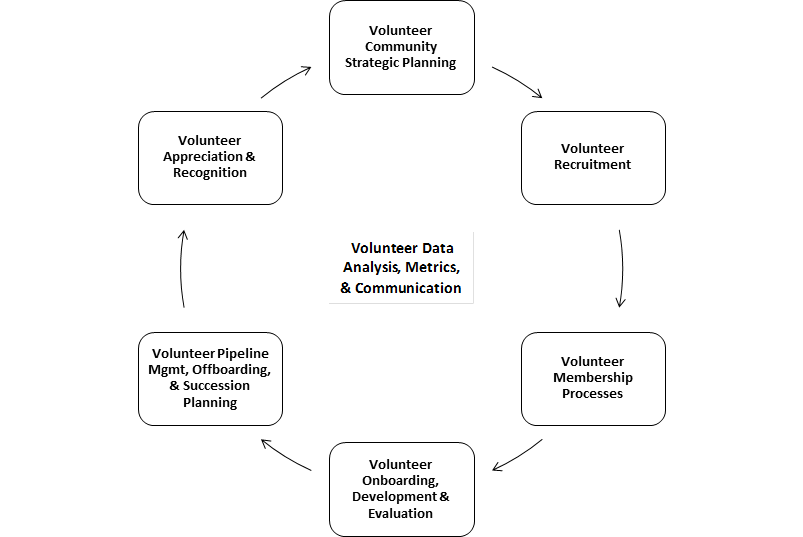Let's face it—sometimes managing volunteers can feel like more work than the volunteers are helping your office can get done.
It's important to have a strategy for integrating them into your work, whether you work in alumni relations, advancement, or elsewhere.
Loreal Maguire is Director of Volunteer Programs and Laura Denbow is Senior Director of Volunteer Programs in Cornell's office of alumni affairs. We asked them to share how Cornell integrates alumni into their advancement strategy.
Can you explain the lifelong engagement model you use at Cornell?
We have found that the essential elements to the lifelong engagement model include: strategic planning, volunteer recruitment, onboarding/professional development/evaluation, pipeline management and succession planning, and volunteer appreciation & recognition—all grounded in strong data analysis/metrics and communication (see below).
Our ultimate goal is better/increased engagements and satisfying volunteer experiences, in addition to an enriched university both in terms of connectivity to its volunteers and a financial/volunteer pipeline.
What roles do volunteers play in advancement operations at Cornell? On the flipside, in what ways do advancement operations offer alumni engagement strategies?
We have volunteers in various areas across the University including in our advancement operations. Those roles vary from regional campaign committee roles to development committee roles to regional scholarship director roles.
These roles are rich opportunities for alumni engagement. We—as engagement officers—work closely with our development colleagues in ensuring that their prospects are being offered the most appropriate opportunities for engagement. Communication is key.
What advice would you give to other institutions seeking to emulate your success?
Make sure you have the support of your leadership, that you have transparency and good communication, and that you are inclusive.
We had the support of a Trustee Task Force who wanted to understand the breadth and scope of volunteering at Cornell, to review the impact of and function/interaction of volunteer organizations on the institution, and to develop a plan to improve the volunteer experience, involvement and impact. This took time and a lot of communication with and representation of Deans, volunteer managers/development staff, and alumni.

